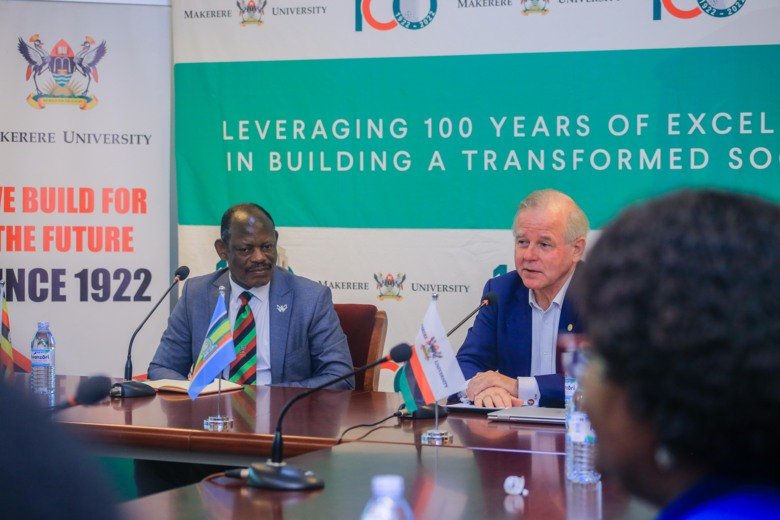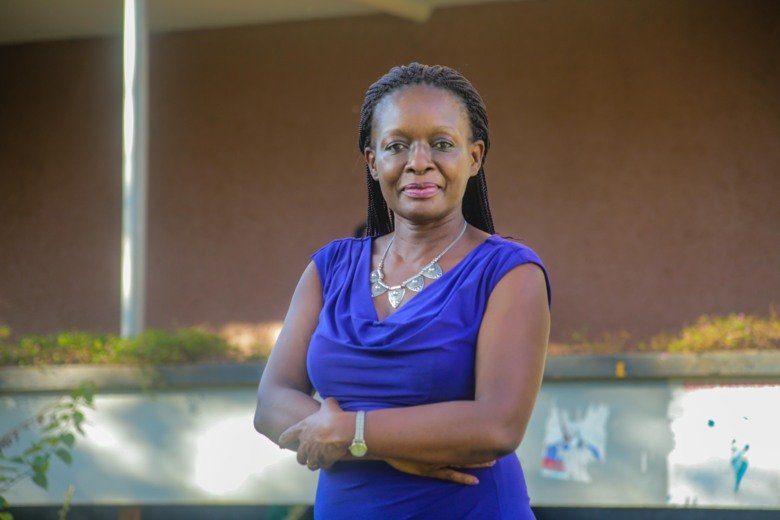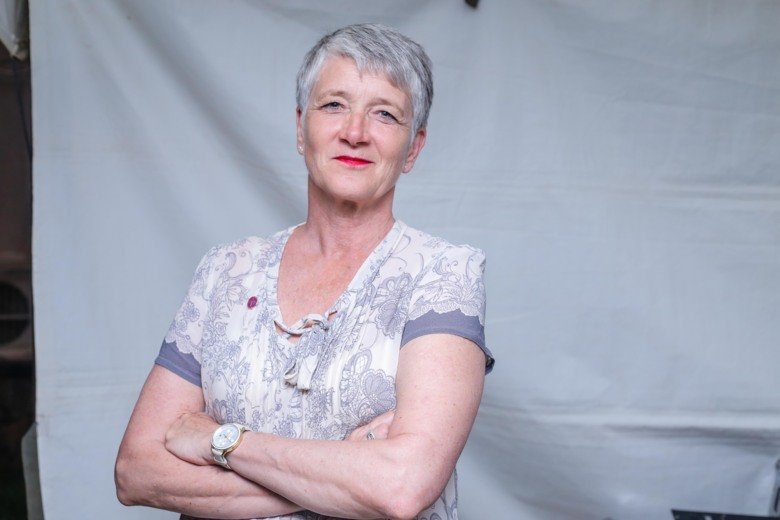Next step for the fruitful collaboration between Makerere University and KI

One of KI’s largest international collaborations is with Makerere University in Uganda. In time for Makerere’s 100th anniversary, the partnership is to manifest itself in a Centre of Excellence for Sustainable Health. A delegation from KI travelled in May to Uganda to cement the relationship.
“The foundation of a virtual centre for sustainable health gives us a totally new way to build international collaborations,” says KI president, Ole Petter Ottersen. “Mutuality and far-sightedness will pervade all our projects with the aim of improving health for all. The centre will enable more international collaborations, not just in Uganda but also with more countries in Africa, such as Somalia, and other parts of the world. In today’s turbulent world, it is especially important to work on a global stage and stand up for responsible internationalisation.”
From research to extensive collaboration
The partnership between Makerere University and Karolinska Institutet was established back in 2000. At first it was mainly focused on research, but it was soon extended to everything from student and teacher exchanges to joint doctoral studies. There is now a related alumni network containing hundreds of researchers and healthcare workers in Sweden and Uganda.
One of the students who was quick to snap up the chance to change their study environment from Makerere University to Karolinska Institutet was Noeline Nakasujja. Today, she is a practising psychiatrist and departmental head at the Department of Psychiatry at the College of Health Sciences, Makerere University.
“I spent a month in Stockholm in 2005, which was a real eye-opening experience,” she says. “It opened a window onto our cultural differences and onto the differences in resources between universities. It made me realise how much we can achieve even with limited resources.”

Since the exchange programme began, some 300 students and teachers have participated.
“During my time in Sweden, I almost immediately saw a clear difference in student-teacher relations,” she continues. “We have a much more marked hierarchy. At Karolinska Institutet, I saw how it was even possible to have a more relaxed relationship without compromising the seriousness of the teaching.”
After her exchange, Noeline Nakasujja also took the opportunity to take a joint PhD at KI and Makerere.
“My time as a doctoral student led to me receiving a doctoral student from KI,” she says. “That personal contact was the key to creating a platform that has enabled others to successfully navigate a foreign university.”
Since then, Noeline Nakasujja and her department have accepted numerous students from KI, and she finds her first-hand experience of the Swedish study environment comes in very useful here. She now believes that the new Centre of Excellence for Sustainable Health can deepen the relationship between the two universities even more.
“We need to strengthen the preventative work we’re doing in Ugandan healthcare,” she says. “Patients with Alzheimer’s can particularly benefit from early intervention, such as physical exercise and social activities that help to slow the onset of disease.”
She goes on: “The only way to create truly sustainable health and social care services is by breaking the circle and offering prophylactic intervention.”
There are several partners attached to the Centre of Excellence for Sustainable Health, including universities in Congo, Somalia, Kenya, Malawi and Ethiopia.
“The collaboration enables us to create an environment for the exchange of knowledge and experience that will have a knock-on effect on other international partnerships,” she explains.
Innovation developed in Uganda now implemented in Sweden
Susanne Guidetti, professor of occupational therapy at the Department of Neurobiology, Care Sciences and Society has been involved in developing student and teacher exchanges between Makerere and KI since 2004. Back then, she had just come home from having lived with her family in Nairobi for a few years and was put straight in touch with Julius Kamwesiga, an affiliate of Makerere University.
“Together we sketched out a project for examining how mobile phones could be used to stroke rehabilitation in Uganda,” she recalls. “We built on a rehab model to reach more people, even those living in rural areas with a long way to travel to get rehabilitation.”

The studies were conducted with Mulago National Specialised Hospital and gave the participants access to daily exercise with the help of their mobile phones. Stroke awareness is low in Uganda, where most people live in remote areas far from the nearest clinic.
“When we can work together to offer more people stroke rehabilitation, we give them a real possibility to live a better life,” Guidetti says. “After the project, one of the participants came up to me and said: ‘The surgeon helped me survive, but my contacts with the occupational therapist made life worth living again’.”
The study will now undergo a larger-scale follow-up in Uganda, and its findings have prompted further studies in Sweden.
“What made our study unique was that we brought knowledge and experience from Uganda to Sweden. Here, our innovation will make it possible to help stroke patients in remote parts of Sweden, too,” she says. “There are now several mobile phone-based rehab options, but in Uganda we helped to pioneer the technique.”
Today, Guidetti has an important part to play in the Centre of Excellence for Sustainable Health.
“Our project is a good example of how we can create an equivalent platform for sharing knowledge. Hopefully, we’ll be able to develop it further at the Centre and take new steps together towards sustainable health.”
The Centre of Excellence for Sustainable Health enables not only the sharing of knowledge and experiences, but also the development and spread of innovations that can bring the goal of sustainable global health closer to being achieved. The knowledge and the network that the centre possesses make it easier for us to take on today’s pressing societal challenges together, not only in Sweden and Uganda but globally, too.
“We have an incredible amount to learn from each other,” says Professor Ottersen. “Let us be inspired by each other’s solutions, big and small, and together find more ways to tackle global health challenges. With the founding of the Centre of Excellence for Sustainable Health, our partnership takes the step from aid funding to being a true partner-driven collaboration.”
